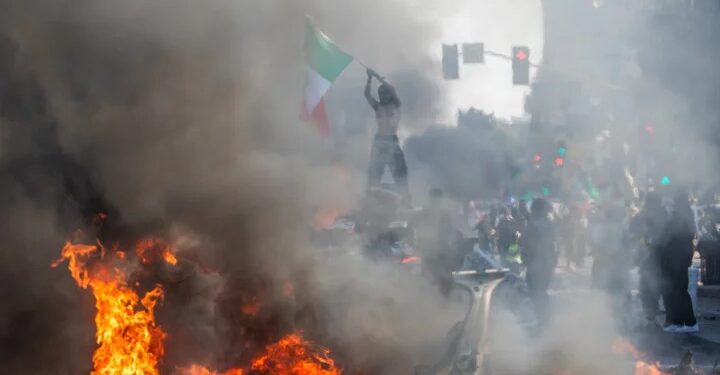Protests in Los Angeles intensified over the weekend, prompting former President Donald Trump to call for the deployment of the National Guard and opening a new front in the political battle over law and order. As demonstrators clashed with police in parts of the city, Trump’s ally and former Fox News host Pete Hegseth raised eyebrows by suggesting that Marines may be needed to restore control—comments that have sparked fierce debate.
The protests, initially sparked by concerns over police conduct and social inequality, have drawn large crowds across multiple neighbourhoods, including downtown LA, Hollywood, and Westlake. While many demonstrators marched peacefully, there were several incidents involving property damage, blocked roads, and confrontations with law enforcement.
Speaking at a rally in Nevada on Sunday, Trump denounced the unrest as “anarchy” and accused Los Angeles officials of “losing control of their own city.” Within hours, he announced that, if re-elected, he would not hesitate to “flood the zone” with National Guard troops if local leaders fail to act decisively.
Although Trump no longer holds office, California Governor Gavin Newsom confirmed late Sunday that the National Guard was being deployed to Los Angeles in coordination with city officials, citing the need to “protect infrastructure, ensure safety, and prevent escalation”. The move is seen as a precaution, but its optics suggest a response to mounting national pressure from conservatives.
The more controversial turn came from Hegseth, a military veteran and close Trump confidant, who took to social media to say: “If the Guard isn’t enough, send the Marines. Los Angeles needs to remember who’s in charge.” His remarks, although not an official policy statement, drew condemnation from critics who see them as incendiary and undemocratic.
Local leaders, including LA Mayor Karen Bass, expressed concern over the tone of national rhetoric. “We are committed to protecting the rights of peaceful protest,” she said in a statement. “But threats of federal force only inflame tensions and undermine community trust.”
The demonstrations appear to reflect a broader swell of frustration rather than a single event, blending demands for police reform with opposition to growing inequality, housing instability, and perceived political indifference. With the city already under pressure from a rising homelessness crisis and frayed civic infrastructure, the unrest has pushed LA into the national spotlight.
Civil liberties organisations have warned against a militarised response, pointing to past incidents in which the deployment of federal forces escalated rather than resolved protests. “This is a moment for dialogue, not domination,” said one ACLU spokesperson.
The situation has become a lightning rod for the 2024 presidential race, with Trump and his surrogates portraying Los Angeles as a symbol of Democratic failure and disorder. Meanwhile, Biden administration officials have urged restraint, emphasising community-based approaches to de-escalation.
As of Monday morning, National Guard units had taken up positions near key public buildings, though there were no reports of direct confrontation. Protest leaders have called for continued demonstrations throughout the week, insisting their message will not be silenced by troop deployments.
The coming days will test whether California’s leadership can defuse tensions without ceding ground to political pressure or further dividing an already polarised public. The presence of armed troops in a major American city is a stark reminder of the stakes—both political and social—in a country still struggling with its identity, and its future.
newshub finance



Recent Comments